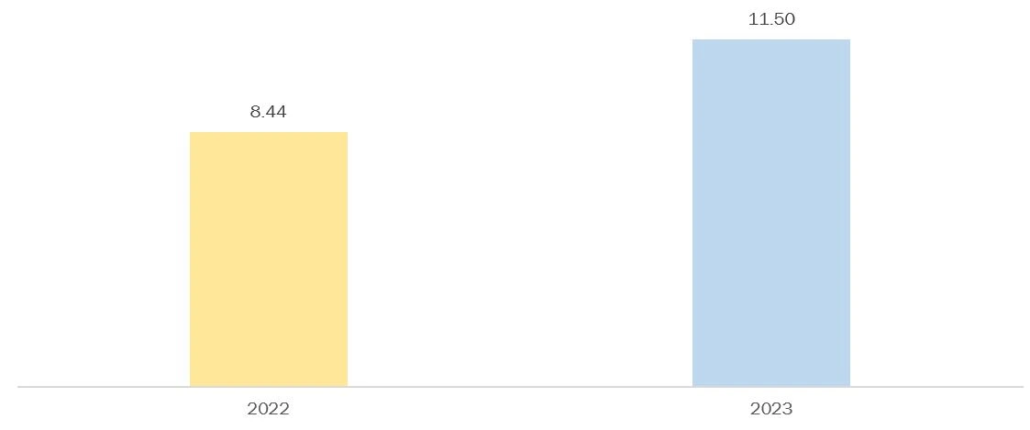How AI and Machine Learning Are Revolutionizing Data Center Security

In the era of digital technology, data centers serve as the building block for information technology infrastructure. When threats become more sophisticated, primitive security controls very often do not provide enough protection against unauthorized access to confidential information and secure protection of such critical systems. Data center security, however, is evolving thanks to these tools called artificial intelligence (AI) and machine learning (ML). The use of AI and ML technologies in the detection, response, and prevention of global cyber threats and how the existing canvas of data center security is changing because of that. For instance, the expected costs of cyber attacks in 2022-2023 have been raised from US$8.44 trillion to US$11.50 trillion.
Figure 1: Estimated Cost of Cybercrime, in USD Trillions, Global, 2022 to 2023
 Source: Weforum.gov
How AI and machine learning are revolutionizing data center security are as follows:
Source: Weforum.gov
How AI and machine learning are revolutionizing data center security are as follows:
 Source: Weforum.gov
How AI and machine learning are revolutionizing data center security are as follows:
Source: Weforum.gov
How AI and machine learning are revolutionizing data center security are as follows:
- Enhanced Threat Detection
- Automating Security Operations
- Advanced Behavioral Analysis
- Real-Time Analysis and Decision-Making
- Adaptive Learning and Continuous Improvement
- Virtualization and Cloud Adoption
Get in Touch
Interested in this topic? Contact our analysts for more details.
Latest Thought Articles

Top OSAT Companies Driving Semiconductor Assembly and Test Services Worldwide
Recently
EV Charging Stations Market Outlook: Smart Charging, Fast Charging, and Regional Expansion
Recently
Future of Corporate Wellness: Global Trends and Regional Outlook
Recently
Regional Breakdown of the Mechanical Keyboard Market: Who Leads and Why?
Recently